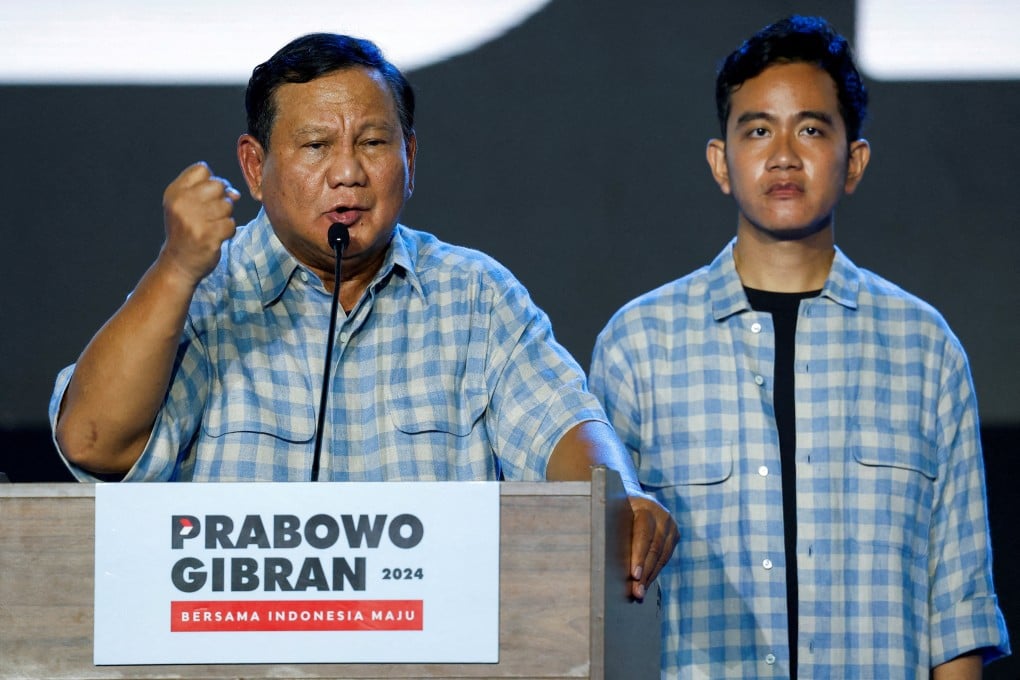Editorial | All eyes on Prabowo as he prepares to take charge in Indonesia
- Despite a chequered past, new leader can be expected to continue his country’s good relations with China and the region under the stance of neutrality

Opinion polls predicted Prabowo Subianto’s decisive victory in Indonesia’s presidential election at his third attempt. But that did not detract from global interest in the outcome for leadership of the world’s third-biggest democracy and Southeast Asia’s biggest economy.
Prabowo finally proved his mettle with voters, despite a past of human-rights abuses. He vowed continuity, having twice lost elections to Joko Widodo, known as Jokowi, who will be retiring in October and is riding high on approval ratings of 80 per cent.
Jokowi’s stance on close Belt and Road relations with China, one of Indonesia’s biggest investors, and the country’s long-held stance on non-aligned neutrality are key pillars of foreign policy to be welcomed in a polarised world fraught with geopolitical tensions.
In terms of continuity, the reality is that Prabowo was not the only one on his election ticket. Incumbent Jokowi was there, too, in a sense because his son, Gibran Rakabuming Raka, was Prabowo’s running mate and vice-presidential candidate, ensuring his father’s influence.
While continuity can be expected, there are some unknowns. Prabowo is more nationalistic that his predecessor. It remains to be seen whether that rears its head. But it is hard to see him changing course when it comes to Chinese investment.
Examples over the last decade include the energy sector, such as hydroelectric projects, and industrial parks focused on the nickel and related industry.
